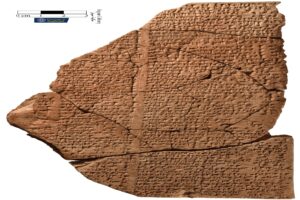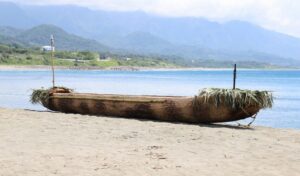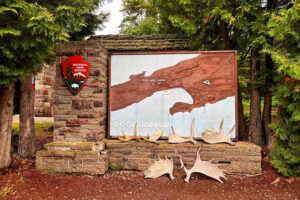Maritime archaeologists from the Wisconsin Historical Society (WHS) got amped last year when they discovered a 1,200-year-old canoe in Lake Mendota. They called it “one of the most important artifacts in the organization’s 176-year history”.
Then this week, they hauled a much older canoe out of the same lake. It predates the Roman Empire, dating back to 1,000 BC, according to radiocarbon dating. This makes it the oldest canoe ever discovered in the Great Lakes region by roughly 1,000 years, the historical society said this week.
Carved from a single piece of white oak, the 3,000-year-old dugout measures about 4.4 metres long. WHS maritime archaeologist Tamara Thomsen first discovered it back in May during a recreational dive.
Plans for recovery began immediately, with a joint effort between the society and Wisconsin’s Native Nations. Thomsen found the latest canoe in a similar area as the one from last year. That suggests Lake Mendota’s shoreline has changed over time, said Dr. James Skibo, WHS state archaeologist.
“Since it was located within 100 yards of where the first canoe was found at the bottom of a drop-off in the lakebed, the find has prompted us to…explore the possibility that the canoes were near what [are] now submerged village sites,” Skibo said.
‘Honoring those who came before’
The canoe provides the earliest direct evidence that Native people used water transportation for thousands of years. Members from the Ho-Chunk Nation and Bad River Tribe were present at the canoe recovery.
“The recovery of this canoe built by our ancestors gives further physical proof that Native people have occupied Teejop (Four Lakes) for millennia,” said Ho-Chunk President Marlon WhiteEagle. “Every person that harvested and constructed this caašgegu (white oak) into a canoe put a piece of themselves into it. By preserving this canoe, we are honoring those that came before us.”

Divers stabilize a raft during the recovery. Photo: Bryce Richter for UW–Madison
Recovery complete, preservation gets underway
Volunteers helped WHS archaeologists with the excavation and recovery. The crew first hand-excavated the canoe, then recovered it on September 22. Finally, the team transported it to the State Archive Preservation Facility in Madison.
Tribal members and WHS staff will work together to care for the artifact. They will lower it into a large preservation vat also containing the 1,200-year-old canoe discovered last year.
Together, the canoes will undergo a two-year preservation process that will conclude with freeze-drying to remove any remaining water.






